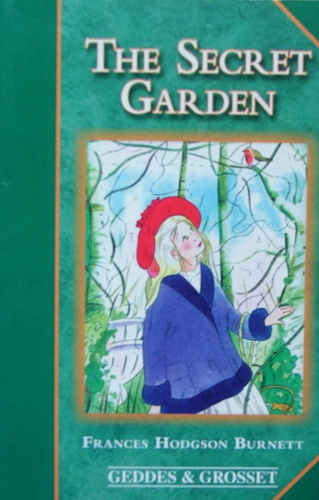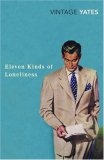 Author: Charles Dickens
Author: Charles Dickens Published by: Penguin Group, 488 pages
Opening: It was the best of times, it was the worst of times, it was the age of wisdom, it was the age of foolishness, it was the epoch of belief, it was the epoch of incredulity, it was the season of Light, it was the season of Darkness, it was the spring of hope, it was the winter of despair, we had everything before us, we had nothing before us, we were all going direct to Heaven, we were all going direct the other way - in short, the period was so far like the present period, that some of its noisiest authorities insisted on its being received, for good or for evil, in the superlative degree of comparison only.
It is not easy to review a classic, let alone a classic with great historical implications such as Dickens' A Tale of Two Cities. However, as a devout Dickens reader, I feel obliged to review his book.
Like many great literature in history, A Tale clothes itself in multiple layers of meanings and the story can be enjoyed on various level depending on the age of the reader. On the most superficial level, it is an intimate story of kinship and love with the tumultuous backdrop of French Revolution. Lucie reunites with her long-lost father (Doctor Manette) who has suffered years of political imprisonment in the Bastille. With Lucie's loving care, Doctor Manette struggles to maintain his sanity which is otherwise reflected by his obsessive shoe-making activities. During this time, Lucie is met and pursued by two suitors - Charles Darnay who is an exiled French aristocrat, and Sydney Carton who is a disreputable but brilliant English lawyer. As the story progresses, Lucie marries Darnay and war breaks out in France. Darnay is arrested for his acrostic association. Doctor Manette learns to let go of his fear and irrational rage towards his prosecutors through helping Darnay. But it is Sydney Carton who makes the ultimate sacrifice in the name of justice and his undying love for Lucie.
Of course, Dickens' stories are never to be taken lightly at its face value. There are always deep and even deeper implications, which makes his books so much more intriguing. The most important implication of this book is the French Revolution. Unlike other books from the genre of historical fiction, Dickens used only a handful of characters and successfully delivered the epic movement of history and portrayed the clash of classes by microscopically examining the relations between Manette, Darnay and the Defarges. There is strong conflict between the lowly working-class such as the Defarges and Darnay who is crowned as an aristocrat only by birth but would rather earns an honest and modest life by laboring for it. Then, there is Manette. Caught between two clashing forces, his unforgettable past gives him the urge to hate Darnay and the likes of him, yet Darnay's marriage with his daughter represses him from exposing his inner feeling. Manette's internal struggle and fragility is seen everywhere in the book and his dependence on his daughter Lucie is somewhat disturbing to me.
The Defarges are the central characters who represent the roaring mass that overrun the Bastille. At the end of the story, readers will discover the Defarges have ulterior motive for uprising and for relentlessly trapping Darnay. I don't want to give away too much but it does have a hollywood-ish dramatic effect where everyone turns out to know everyone in the end.
Readers may wonder why Dickens chose to focus on two cities rather than just one. The answer becomes quite obvious as we move onto later chapters. To Docotor Manette and Lucie, London is a safe haven where they are able to live at peace and with abundant joy. Paris, however, is a city of turmoil. With each trip they make to Paris, they lose more and more control over their lives. Without London to contrast Paris in the story, it is hard to show how much damage the war has caused.
This book is different, yet I wouldn't consider this book a historical fiction more than a general fiction. As much as this book is different from his other master pieces such as Oliver Twist and Great Expectations (which are both my favorite), Dickens' writing still focused on character development and the relationships between them, as well as the contrast between classes.
If you ever complained about Dickens' writing style to be lengthy and full of descriptions, this book actually is a lot of lighter on the wordy description and uses more of dialogues to lead the story, which means that Dickens is trying to fade out his voice in the story and allow the readers to perceive the characters with more imaginations.
Regardless if you are a Dickens' fan or not, I suggest you pick up and read one of his books, if not this one, any other one will be just as good. To me, Dickens' books are timeless and I like how most of his characters have a sense of purity and goodness in them than are hard to find in most books.






